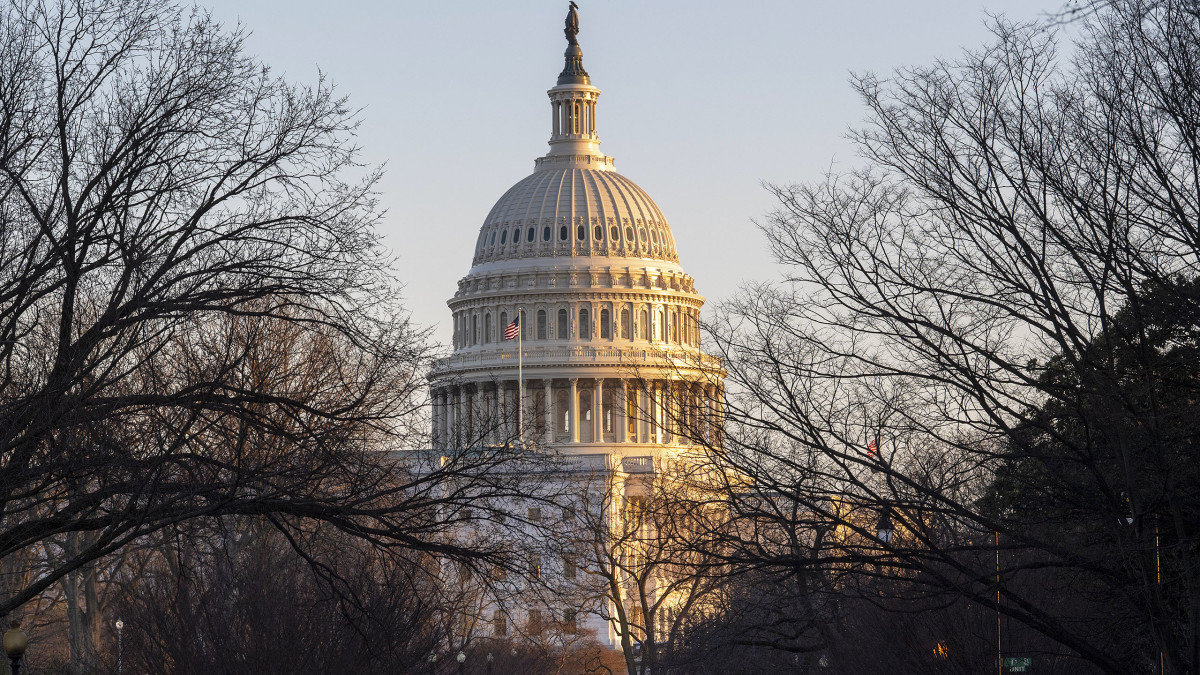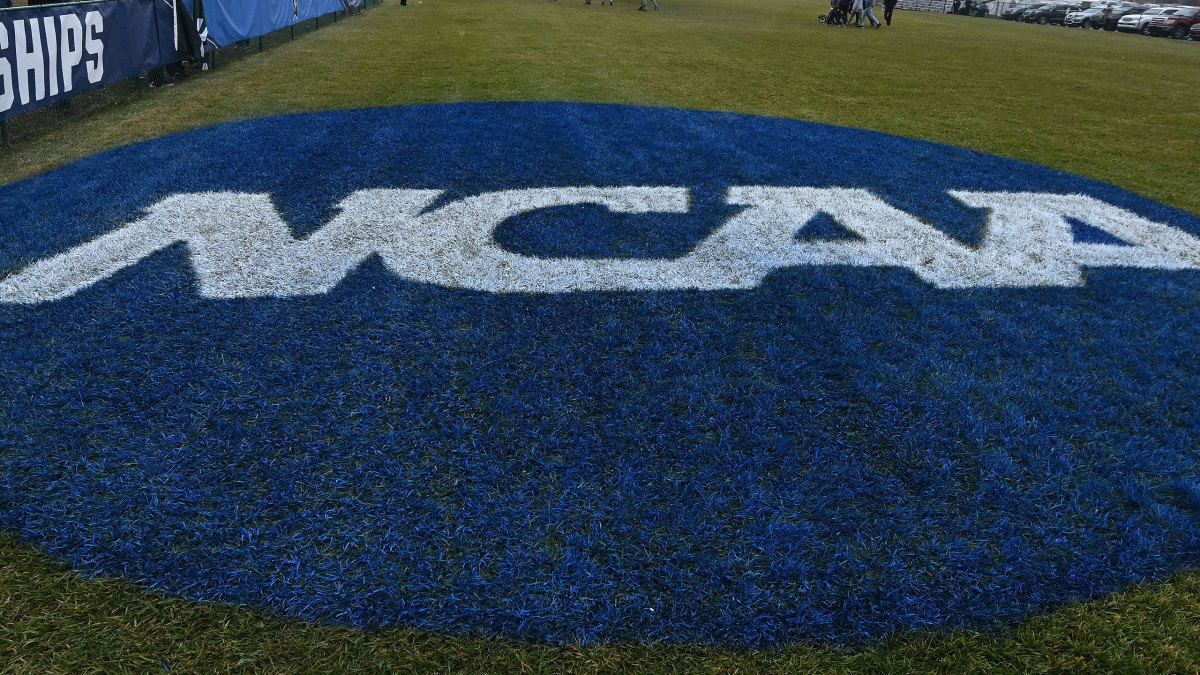As July 1 Nears, Congress Making Critical Progress on NIL and College Athletes' Rights

Months ago, while discussing the impending chaotic scene in college athletics, Tom McMillen, himself a former Congressional lawmaker, reminded NCAA president Mark Emmert that chaos is a mechanism for change.
“It is a fertile legislative ground,” says McMillen, now the president of Lead1, which represents the athletic directors of the Football Bowl Subdivision. “Sometimes you need chaos to get people focused in Washington.”
More than a year later, chaos is nearly here. And so too is, maybe, a Congressional bill governing athlete compensation, most often referred to as name, image and likeness (NIL).
A group of U.S. senators, led by Sen. Maria Cantwell (D-Wash.), are in deep negotiations on bipartisan legislation that could help college sports avoid a chaotic quandary: schools and their athletes operating under differing state laws related to NIL.
The discussions have birthed a proposed bill, circulating among key legislative staffs, that reflects several Congressional NIL bills already introduced, taking components from both Democrat and Republican-leaning legislation. This months-long process is described to have made significant strides recently, with high-profile leaders from the two parties agreeing to concessions as a bevy of state laws threaten to create an uneven playing field across college athletics.

“We are closer than we’ve ever been,” one Congressional source told Sports Illustrated. “But as you know, you can be close without getting across the finish line.”
Multiple legislative officials spoke to SI under condition of anonymity for this story, as they were not authorized to speak about such a sensitive subject matter.
Despite the deep negotiations, they cautioned that not all core provisions have been agreed to. As the two sides seek compromise on both the scope of the bill (broad vs. narrow) and its specific NIL concepts (permissive vs. restrictive), the legislation is constantly evolving.
Two lawmakers who granted interviews with SI, Sen. Jerry Moran (R-Kan.) and Sen. Richard Blumenthal (D-Conn.), acknowledged the growing consensus between the two parties in settling on bipartisan legislation.
Blumenthal says he’s been “encouraged” lately by what some Republican lawmakers have said, and Moran says both Republicans and Democrats have been visiting with him at “a new intensity the last couple weeks.”
All of this comes on the heels of Emmert’s latest visit to Capitol Hill. Last Wednesday, in a meeting with Moran, the NCAA leader expressed his encouragement for Moran’s own NIL legislation, which, for now, includes no co-sponsors, but is seen as one of the more balanced of any compensation bill introduced in Congress. Moran believes he will soon have Democrat senators join as co-sponsors of his legislation and thinks that the two sides of the aisle are nearing the “sweet spot” of attaining the 60 votes necessary to pass legislation in the Senate, he says.
“I think the deadline is approaching rapidly enough that senators of all strides are interested in working together to find a solution,” Moran says.
Moran and Blumenthal have joined others in compromising talks, including Sens. Cory Booker (D-Conn.), Roger Wicker (R-Miss.) and Chris Murphy (D-Conn.), all brought together by Cantwell, the most powerful person on Capitol Hill as it relates to NIL legislation.
As the chairwoman of the U.S. Senate Commerce Committee, she leads a body that holds the most significant influence of any in Washington for college sports’s most troubling issue. Any federal legislation on NIL is expected to start in the Commerce Committee. That makes Cantwell the most important individual around it, controlling the figurative legislative levers from behind the curtain. She has the power to reject, accept or let die any NIL bill, and she’s got the influence to amend or strike details of any legislation.
In one of her first public statements regarding NIL, Cantwell expressed to SI her willingness to grant athletes the opportunity to earn compensation from their NIL.
“College athletes deserve to earn income from their images,” she said in a statement. “Having a hodgepodge of different state laws could lead to recruiting inequities. Hopefully Congress can come together on a federal framework.”
Time is of the essence. States are expediting their own NIL laws as not to be at a recruiting disadvantage with their neighbors. Sixteen states have passed NIL legislation, and five of them have an effective date of July 1: Mississippi, Georgia, Florida, Alabama and New Mexico.
While states are fast-tracking NIL, the NCAA is falling behind in creating its own legislation, advised by its legal team not to pass NIL policies until the Supreme Court rules in the NCAA v. Alston case, something expected by July. The Alston case centers around whether the NCAA’s eligibility rules violate federal antitrust law. Some believe that the NCAA, in granting athletes the ability to earn NIL compensation, would be weakening its amateurism argument before the high court releases its decision.
College athletics insiders are anticipating that the NCAA Division I Council, one of the highest rule-making bodies in college sports, will hold an emergency meeting to pass NIL legislation after the Supreme Court rules. Meanwhile, the states are taking charge, and their NIL bills are expected to grant more freedoms to athletes than anything proposed by the NCAA. Emmert has already said that athletes who earn compensation by following their state law will not be punished by the organization.
In the meantime, the NCAA’s delay in passing NIL legislation—some leaders say rules should have been amended years ago—has the organization seeking help from Congress for a universal law that both preempts the state laws and grants other NCAA protections.

In Emmert’s latest visit to Capitol Hill, he implored Moran to move as quickly as possible.
“I agree with that and we’re working hard to do that,” Moran says. “It was not about the details of the bill—it was about the necessity of getting a bill passed that was acceptable to a broad range of senators. It’s easy around here to introduce a piece of legislation that you yourself and a handful of others will cheer, but the more difficult thing is to find the common ground that allows a bill to pass by 60 votes.”
While some believe the July 1 deadline is a longshot, others say that the latest negotiations on the issue have cracked the door to a possible solution by that date. Moran believes it will be tough “but certainly not impossible.”
Moran and legislative aides believe that a bipartisan NIL agreement could be added as an amendment to a more substantive piece of legislation already moving across the Senate floor—a way to quickly push through the proposal without litigation.
“It would take good fortune,” Moran says, “but it’s possible.”
For that to happen, more agreement is needed. Over the last year, a gap formed between Republicans and Democrats over NIL, at first seen as bipartisan legislation. While Democrats want a broad bill that expands beyond NIL and gives athletes the most freedoms to strike endorsement deals, Republicans lean toward narrow legislation limited to NIL and most friendly to the NCAA. After the 2020 election, the Democrats took control of the Senate, giving them the upper hand on any NIL bill.
Two noteworthy athlete compensation bills introduced in Congress each represent a school of thought along the spectrum of this raging debate. Booker and Blumenthal’s College Athletes Bill of Rights, yet to be re-introduced in the new Congress, is on the far left of the scale, a sweeping legislation that includes revenue sharing, lifetime scholarships and unrestricted endorsements. Wicker’s bill is on the far right, a narrow bill focused only on NIL and featuring NCAA protections and athlete restrictions.
The latest Cantwell-led negotiations seek to find a middle ground—a bill more broad than Wicker’s but not quite as expansive as Booker and Blumenthal’s, all while providing athletes with enough freedoms.
There are a handful of hotly debated sticking points between the two sides. For instance, does the Congressional bill have to preempt state laws completely, or does it allow for state laws to grant athletes more freedoms? The NCAA’s request for antitrust protection—a nonstarter among many Democrats—is a talking point too. One option is granting the organization protections, as Moran’s bill does, from lawsuits retroactively filed by former college athletes over NIL.
“I have a general inclination against it,” Blumenthal says of such a provision, “but I’d be willing to consider a narrowly defined one. It can’t be a get-out-of-jail free card.”
Another big issue: whether a school can control an athlete’s endorsement or commercial opportunities. For instance, the NCAA’s own NIL proposal and some state laws grant schools the right to prohibit their athletes from signing deals that conflict with their own endorsement agreements. Other issues include the role of boosters; how and who determines fair market value on commercial deals, as to prevent inflated contracts; and what entity enforces NIL (for now, many believe that will be the Federal Trade Commission).
The newest bill proposal is expected to go beyond NIL, granting athletes long-term healthcare and lifetime scholarships—a pair of athletes’ rights that are not featured in Wicker’s own legislation and a potential hurdle in negotiations. Revenue-sharing with athletes, a Democrat-leaning provision, is not expected to be a part of any new legislation.
“We are prepared to be flexible on a number of provisions and that may be one of them,” Blumenthal suggested.
While negotiations heat up on Capitol Hill, pressure is skyrocketing from states across the country. Chaos, as they say, is nearing. And just maybe, that brings compromise.
“Here’s the bottom line: legislation allowing college athletes to sign endorsement deals is already becoming law at the state level, whether the NCAA wants it or not,” Murphy said in a statement this week to SI. “The NCAA says the sky will fall if these laws go into effect—let's see if that's true.”
More College Sports Coverage:
• The Pac-12 Puts Its Future in Unexpected Hands
• In College Football, the Push for Vaccination Is On
• Three Football Teams That May Regress in 2021
